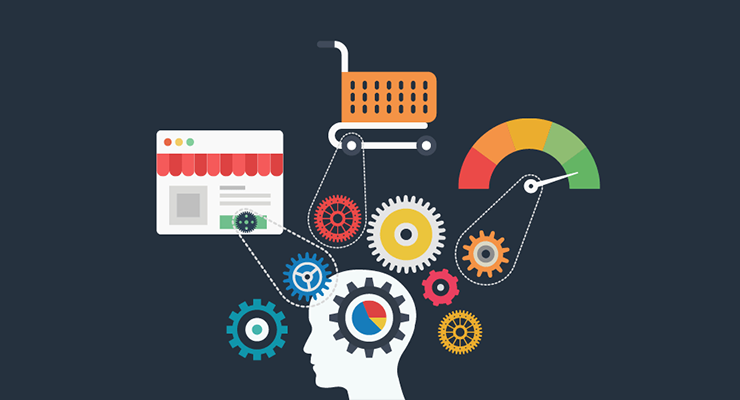
From Clicks to Conversions: The Role of Digital Marketing in Business
November 26, 2023
Programmatic Advertising and AI Marketing: A Winning Combination for Business Success
November 28, 2023INTRODUCTION
Artificial Intelligence (AI) is no longer a futuristic concept. It’s here, and it’s revolutionizing the way we approach marketing. In this article, we’ll unravel the mysteries surrounding AI and explore how marketers can seamlessly integrate it into their strategies for unparalleled success.
Artificial intelligence (AI) has quickly become a buzzword in the business world, and for good reason. It has the potential to revolutionize the way businesses operate, including marketing strategies. However, many marketers are still unsure of what AI truly entails and how it can benefit their businesses. This blog aims to demystify AI for marketers by providing clear and concise explanations of its applications and benefits. By embracing AI, businesses can stay ahead of the curve and leverage this powerful technology to drive growth and success in today’s competitive market.
Understanding the impact of AI in marketing
Understanding the impact of AI in marketing is crucial for every marketer looking to stay ahead of the competition. AI has the ability to transform marketing strategies, enabling businesses to analyze massive amounts of data, automate processes, and personalize customer experiences.
In today’s rapidly evolving world of marketing, having a deep understanding of the impact of artificial intelligence (AI) is essential for any marketer wanting to maintain a competitive edge. AI has the remarkable capability to revolutionize marketing strategies by empowering businesses to analyze vast volumes of data, automate various processes, and deliver highly personalized customer experiences.
One of the most significant advantages of AI in marketing lies in its ability to process and analyze massive amounts of data. With the increasing digitization of customer information and the proliferation of online channels and social media platforms, marketers now have access to an overwhelming amount of data. Traditional manual analysis methods simply cannot keep up with the scale of data available. AI tools, on the other hand, can efficiently process and make sense of this data in real-time, providing marketers with invaluable insights and actionable recommendations.
Moreover, AI enables marketers to automate various time-consuming and repetitive tasks, freeing up valuable time and resources. For instance, AI-powered chatbots can handle customer queries instantly and seamlessly, providing immediate assistance and improving the overall customer experience. Similarly, AI can automate the process of content curation, allowing marketers to create targeted and relevant content for specific customer segments efficiently. By automating these tasks, AI empowers marketers to focus on more strategic activities, such as devising effective marketing strategies and building long-term customer relationships.
Furthermore, AI plays a crucial role in personalizing customer experiences. By analyzing vast amounts of data, AI can identify individual preferences, behaviors, and purchasing patterns of customers. This granular understanding enables marketers to deliver highly personalized marketing messages, recommendations, and offers to individual customers across various touchpoints. Personalization not only enhances the customer experience but also increases customer loyalty and drives more meaningful engagement. With AI’s ability to continuously learn and adapt based on customer interactions, marketers can create highly tailored marketing campaigns that resonate with their audience on a more personal level.
Having a deep understanding of the impact of AI in marketing is essential for marketers who want to stay ahead in the competitive landscape. AI has the transformative power to revolutionize marketing strategies, allowing businesses to efficiently analyze vast amounts of data, automate complex processes, and deliver personalized customer experiences. By leveraging AI technology, marketers can unlock new opportunities and gain a competitive edge in today’s dynamic market.
One of the key areas where AI has proven to be impactful is in data analysis. AI algorithms can quickly process large volumes of customer data, allowing marketers to gain valuable insights and make data-driven decisions. This helps in targeting the right audience, optimizing advertising campaigns, and improving overall customer engagement.
AI also plays a significant role in automation. By automating repetitive tasks, marketers can save time and focus on more critical aspects of their work. From chatbots that provide instant customer support to automated email campaigns that deliver personalized messages, AI-driven automation improves efficiency and enhances the customer experience.
Furthermore, AI enables marketers to deliver personalized experiences at scale. By leveraging AI algorithms, businesses can create tailored content, recommendations, and offers for individual customers, fostering deeper connections and driving customer loyalty.
In summary, AI has a profound impact on marketing, revolutionizing data analysis, automation, and personalization. Marketers who embrace this technology can expect to see improved efficiency, increased customer engagement, and ultimately, greater business success.

Understanding the AI Landscape
What is Artificial Intelligence?
Let’s start at the basics. What exactly is AI? We’ll break down the complex jargon, making AI accessible to everyone, even if you’re not a tech whiz.


